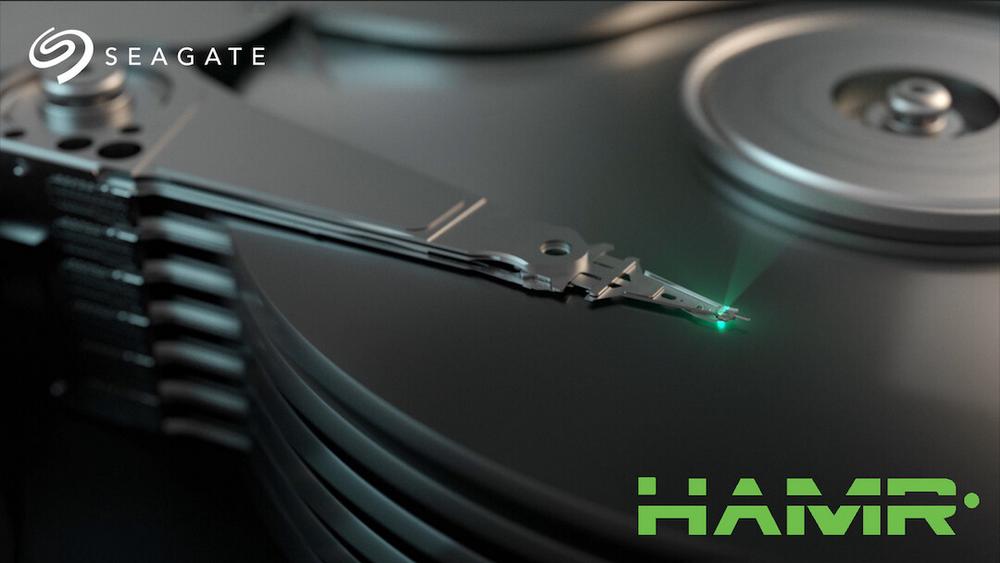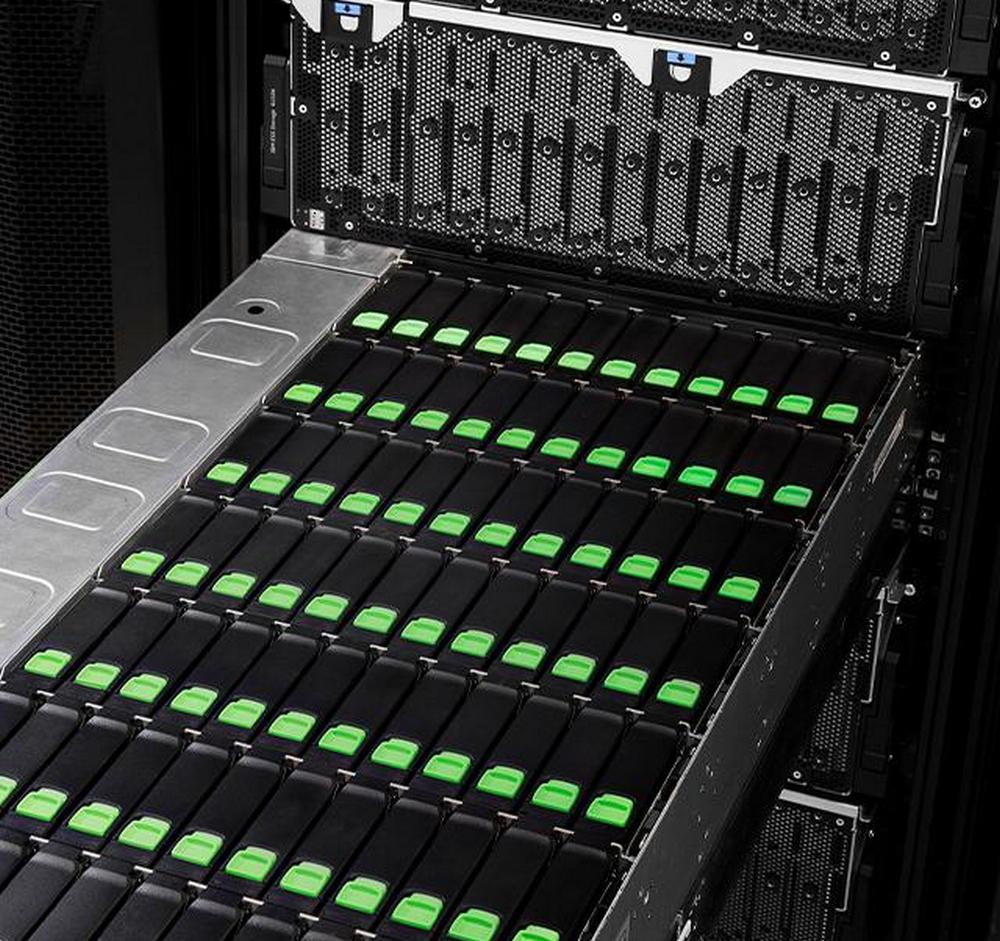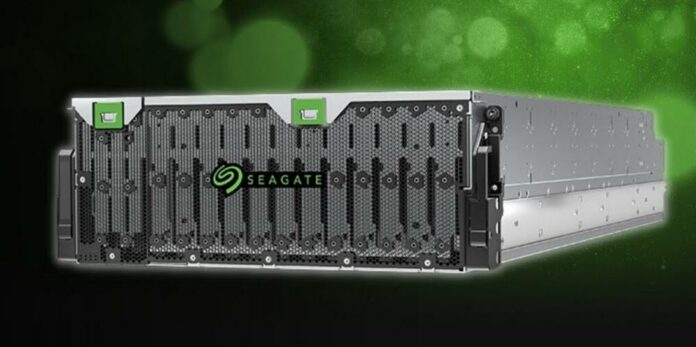Seagate has started shipping high-density HAMR HDDs with capacities above 30TB as part of its Exos Corvault server racks.
Using heat-assisted magnetic recording (HAMR) technology in order to squeeze more data in the same footprint, Seagate’s latest Exos enterprise hard drives offer up to two petabytes of storage inside the brand’s 4U rack Exos Corvault, which can hold up to 106 individual 30TB+ drives, with 40TB models predicted for launch in 2024. Seagate announces up to 14GB/s sequential read and 12GB/s sequential write using 12Gb HD-Mini SAS interfaces.

According to CFO and Executive VP at Seagate Technology, Gianluca Romano, the 32TB drives use 10 disk platters and 20 read/write heads, i.e. the same number as current 20TB PMR HDDs, meaning capacity increases are a result of areal density improvements. The same goes for upcoming 40TB and 50TB models, as the latter features 5TB platters. Chief Executive Officer, Dave Mosley, has also added that the last PMR products are nearing completion and will extend drive capacities into the mid-to-upper 20TB range.
This means Seagate can increase capacity by a lot without increasing the cost per unit, as the bill of material isn’t changing. Consequently, this could trickle down to clients, causing a reduction in total cost of ownership (TCO). The brand expects broader availability of these HAMR-based Corvault systems by the end of 2023.

While Seagate didn’t disclose the specs of 30TB+ drives, since they are mainly targeting datacentres and cloud infrastructures, individual speed is less important than security and reliability, of which the brand announces 99.999 per cent availability.
Seagate also brings attention to what it calls Autonomous Drive Regeneration (ADR), a monitoring technology that renews any problematic HDDs, bringing them back into working order, and thus reducing human intervention. Not to forget lower overheads using ADAPT and 6th generation VelosCT ASICs, alongside streamlined deployment and use via the web GUI.


